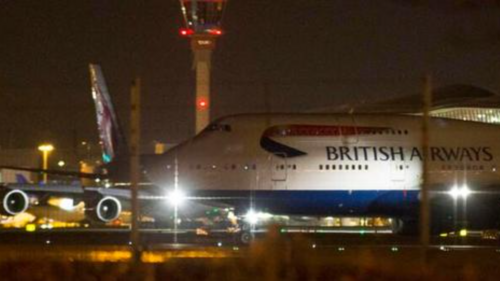News
Niger Closure Diverts Joburg & Cape Town-London Flights

European airlines are grappling with significant disruptions and the suspension of flights across Africa due to the closure of Niger’s airspace by its junta. This action, initiated on Sunday, has triggered a cascade of consequences for regional and international travel, warranting attention from European carriers and West African regional authorities as reported by DFA.
Also Read: Metro Urges Pensioners to Apply for Rebates: What You Need to Know
The junta’s decision has positioned itself against the West African regional bloc, dismissing their request to reinstate the deposed president. Consequently, due to their defiance, the junta faces the looming prospect of potential military intervention.
This disruption, however, is not an isolated incident. It contributes to a tapestry of geopolitical complications in African airspace, reminiscent of challenges faced by regions like Libya and Sudan. Within this context, certain flights are forced into extensive detours spanning up to 1,000 kilometres, showcasing the far-reaching implications of this airspace closure.
The closure of Niger’s airspace reverberates across an expansive geographical expanse, casting shadows over a substantial portion of commercial flights linking Europe and southern Africa. This perspective is validated by FlightRadar24, a tracking service, which aptly highlights the considerable expansion of the flight exclusion zone in the wake of Niger’s airspace closure.
Air France, a prominent European carrier, is compelled to suspend flights to and from Ouagadougou in Burkina Faso and Bamako in Mali, effective until August 11. The fallout of this decision is projected to lead to lengthened flight durations within the Western African region. A spokesperson for the airline anticipates extended flight times for journeys departing from sub-Saharan hub airports, juxtaposed with non-stop flights between Charles de Gaulle Airport in Paris and Accra in Ghana.
While the disruption looms large, aviation analyst James Halstead lends a measured perspective. He indicates that airlines will likely navigate this challenge by charting alternative routes, minimising the extent of difficulties. Given the relatively limited number of African air connections, the scale of the disruption is perceived to be contained. Halstead’s outlook narrows the focus to specific regions likely to be impacted, such as routes from Europe to Nigeria, South Africa, and possibly those from the Gulf of Ethiopia to West Africa.
British Airways emerges as one of the carriers caught in the turbulence in the orbit of this airspace closure. The partial closure of Niger’s airspace has caused a reshuffling of flight trajectories, diverting at least five flights to and from London’s hubs. This diversion encompasses routes spanning Nairobi, Cape Town, and Johannesburg, revealing the ripple effect on British Airways’ operations.
Notably, Lufthansa and Brussels Airlines anticipate elongated flight times for rerouted journeys, estimating potential extensions ranging from one-and-a-half to three-and-a-half hours. This projection underscores the magnitude of the disruptions and the logistical challenges thrust upon airlines to circumnavigate the restricted airspace.
British Airways acknowledges the impact through social media channels, confirming that flights such as the London Heathrow to Johannesburg route have been diverted due to Niger’s airspace closure. The airline apologises to affected customers, acknowledging the disruption to their travel plans. Assurances are provided that efforts are being expedited to restore normalcy and minimise the inconvenience experienced.
Also Read:
Follow us on Google News
Photo: Facebook / @DFA






















